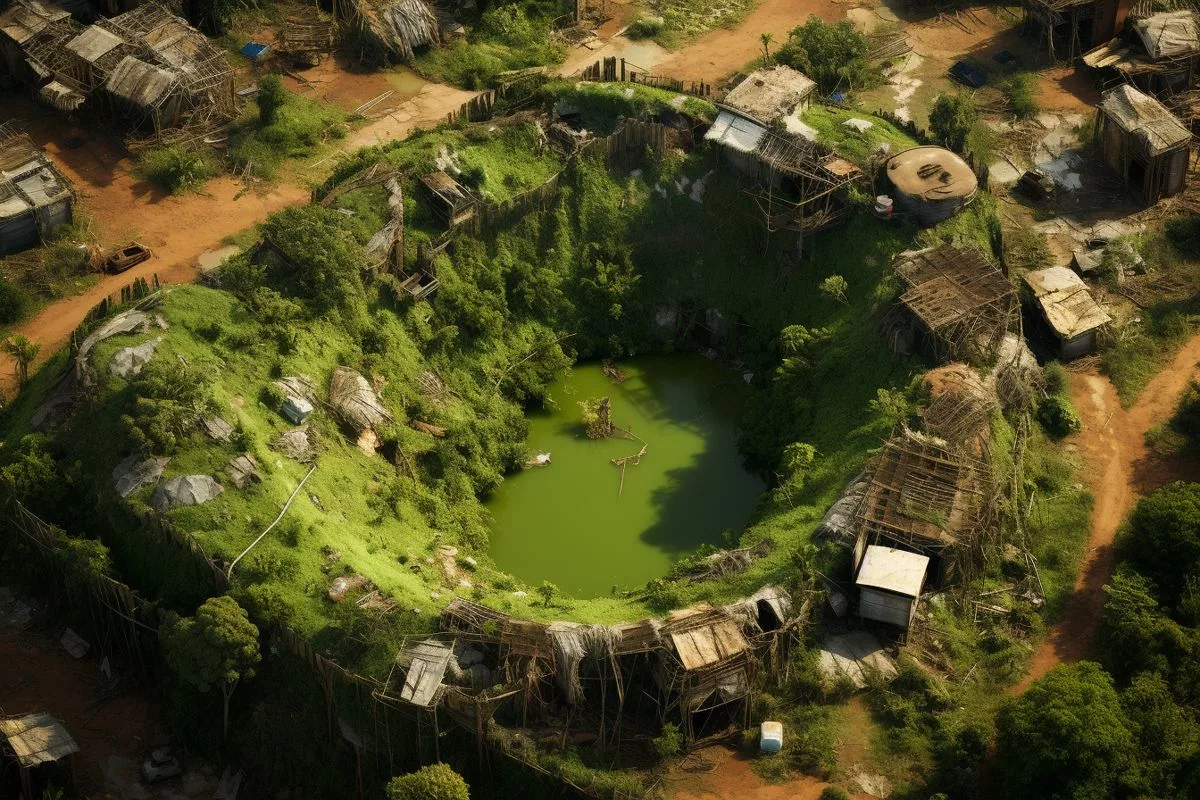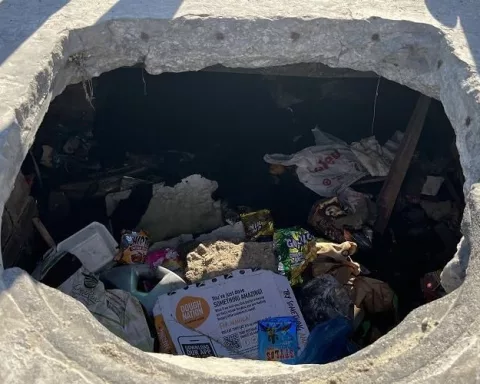Cape Town is fighting against illegal waste disposal by transforming dumping hotspots into beautiful community gardens, thanks to a collaboration between the Urban Waste Management and the Community Services and Health Directorate. The project encourages community engagement and ownership to deter further unauthorized waste disposal. The success of the initiative can be seen in areas once notorious for illegal dumping, now transformed into lush green spaces bursting with local flowers and plants. This project is building a cleaner, greener, and healthier Cape Town, one garden at a time.
Cape Town is battling against illegal waste disposal, which poses a risk to the environment and public health. The city’s Urban Waste Management and Community Services and Health Directorate have collaborated to transform dumping hotspots into community gardens. The success of the project is evident in areas of Ward 25 and Ward 26, and it symbolizes community resilience and collective effort. The initiative also encourages community engagement and ownership, which deters further unauthorized waste disposal. The city is building a cleaner, greener, and healthier Cape Town, one garden at a time.
An Unconventional War
Cape Town, a stunning jewel of the South, is engaged in a battle. The enemy, however, isn’t a common one; it’s the silent and slow encroachment of unauthorized waste disposal. This substantial obstacle poses a risk to the aesthetics, environment, and public health of the city. Despite this, it’s also an opportunity for communal resilience and collective action.
A Novel, Collaborative Solution
At the epicenter of this battle, a glimmer of hope has emerged thanks to an inventive alliance between the City’s Urban Waste Management and the Community Services and Health Directorate. These organizations have teamed up to create and embark on a daring plan to rehabilitate the city’s nearly 3,000 waste dumping hotspots. Their goal is to transform these blights on the cityscape into lush green retreats.
Unauthorized waste disposal has been a nagging problem that drains resources which could otherwise be used for infrastructure upgrades or socio-economic development. It’s not only a drain on the city’s resources but also a public health risk. However, this new initiative is designed to tackle this issue by beautifying the notorious waste dumping sites.
Transforming Dumping Grounds into Community Gardens
The project, in collaboration with the Recreation and Parks Department of the Community Services and Health Directorate, along with local community members, hopes to remodel these areas into community gardens. These aren’t ordinary gardens. They feature the region’s abundant biodiversity with native plant species.
The success of this project is already evident in areas of Ward 25’s Galway Street in Connaught and Ward 26’s junction of Halt Road/Hugo Street and Voortrekker Road in Elsies River. These areas, once notorious for illegal dumping, are now bursting with local flowers and plants. These transformed spaces symbolize community resilience and collective effort.
Alderman Grant Twigg, the City’s Mayco member for urban waste management, emphasizes the importance of community engagement. He believes that the dedication and ownership of the local residents towards these rejuvenated spaces deter further unauthorized waste disposal. Twigg notes that when residents take charge of their local environment, it discourages reckless waste disposal. In his words, “Residents have invested their blood, sweat, and tears into cleaning up the area, and they don’t want to see others ruin their hard work.”
Supporting Community Involvement and Effective Waste Management
For residents and community groups who are interested in contributing to the beautification of their localities, the Solid Waste Events and Partnerships team is readily available via email.
The City also provides help with waste management at the household level. It offers a weekly garbage collection service for all households. In addition, property owners who produce excess waste are encouraged to request additional bins. This simple, yet practical method ensures responsible and efficient waste management while further discouraging illegal waste disposal.
This collective responsibility for the city’s cleanliness extends beyond the immediate battle against illegal waste disposal. It’s a more extensive endeavor to build a cleaner, greener, and healthier Cape Town.
A Story of Resilience and Community Building
Through this initiative, Cape Town is at the crossroads of urban waste management and community building. The project instills a sense of community pride and ownership over common spaces. It is a real-life example of how a community-led initiative, backed by institutional support, can lead to significant change.
As Cape Town continues to fight against illegal waste disposal, it is also weaving a narrative of resilience. The city is transforming challenges into opportunities and waste sites into green havens. This initiative is a testament to the city’s ability to effect change and combat illegal dumping, one garden at a time.
What is Cape Town’s battle against?
Cape Town is battling against illegal waste disposal, which poses a risk to the environment and public health.
Who are the organizations behind the project to transform dumping grounds into community gardens?
The City’s Urban Waste Management and the Community Services and Health Directorate are collaborating to create and embark on a daring plan to rehabilitate the city’s nearly 3,000 waste dumping hotspots.
What is the goal of the project?
The goal of the project is to transform these blights on the cityscape into lush green retreats to build a cleaner, greener, and healthier Cape Town.
How are dumping grounds being transformed?
The project, in collaboration with the Recreation and Parks Department of the Community Services and Health Directorate, along with local community members, is remodelling these areas into community gardens featuring native plant species.
How is community ownership encouraged to deter further unauthorized waste disposal?
The dedication and ownership of the local residents towards these rejuvenated spaces deter further unauthorized waste disposal. Residents who invest their blood, sweat and tears into cleaning up the area do not want to see others ruin their hard work.
How can residents and community groups contribute to the beautification of their localities and promote efficient waste management?
Residents and community groups interested in contributing to the beautification of their localities can seek help from the Solid Waste Events and Partnerships team via email. The City also provides a weekly garbage collection service for all households and encourages property owners who produce excess waste to request additional bins.












